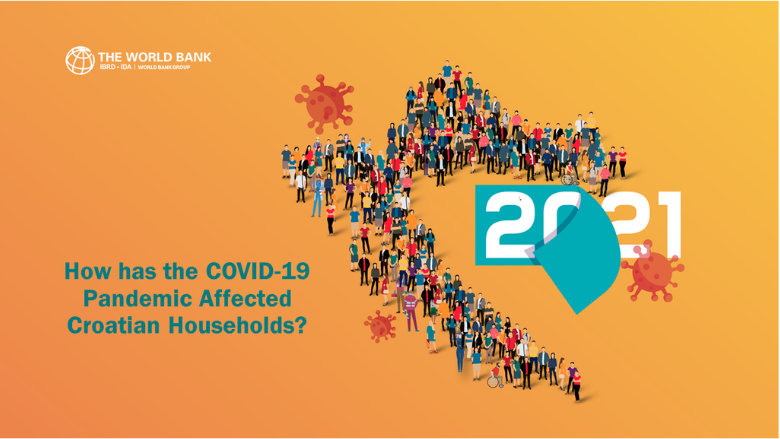About the Survey
The coronavirus pandemic has affected every aspect of the lives of the Croatian population. The national lockdown. School closure. Job losses. Rising prices. The two devastating earthquakes—on March 22, 2020 with an epicenter near Zagreb, and on December 29, 2020 with an epicenter near Petrinja—made 2020 even more difficult to cope with.
2021 has brought new hope. The country is seeing a robust economic rebound and improved conditions for workers. In addition, the government is looking to address the main obstacles for stronger and more inclusive growth through the National Recovery and Resilience Plan, approved by the European Union Council in July 2021. But the recovery is not likely to benefit everyone equally. According to a series of World Bank surveys, the pandemic is having a disproportionate impact on the poor and vulnerable people - especially the working poor, women and rural residents.
The Croatia Rapid Response Survey aims to monitor and assess the impact of this societal upheaval on the Croatian people’s wellbeing from the beginning of the pandemic to the build-back-better recovery process. It is a nationally representative phone survey of the population that captures rapidly changing situations with a focus on employment, income, and public opinion. Surveys (done in seven rounds) capture aspects of the informal economy that GDP statistics may miss. The findings can inform policy makers and development partners of the evolving effects of the pandemic on different segments of the Croatian population and help with the design of mitigation programs to protect the most vulnerable groups. This makes them a valuable tool during crises to help governments and development partners to focus their limited resources on those in most dire need of assistance.
In Croatia, the findings have been publicly presented and discussed in a recorded panel set up, with policy makers, academia and NGOs. These findings aim at informing policy makers and development partners of the evolving effects of the pandemic on different segments of the Croatian population with the objective of helping with the design of mitigation programs to protect the most vulnerable groups.
Questions about the survey can be directed to Nga Thi Viet Nguyen.
